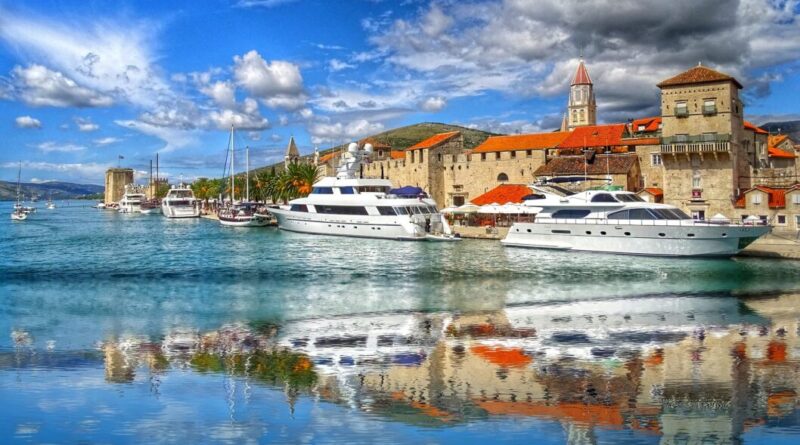Croatia to join border-free Schengen area in 2023, Romania and Bulgaria left out
Croatia will join the border-check free Schengen area in 2023, while Bulgaria and Romania will have to wait longer, EU home affairs ministers decided on Thursday.
After hours of discussions, Croatia received unanimous support from other EU governments. But Austria and the Netherlands blocked the Schengen accession of Romania and Bulgaria, despite the positive evaluation of the European Commission and repeated calls from the European Parliament.
This means that from January 1st 2023, checks at land and sea borders between Croatia and the other countries of the Schengen area will be lifted. Checks at internal air borders will be lifted from 26 March 2023, to coincide with the start of the International Air Transport Association (IATA)’s summer schedule.
From January 1st 2023, Croatia will also start issuing Schengen visas and Schengen visas issued by other countries will be valid in Croatia.
For non-visa countries, such as the UK, the US, Canada, Brazil and Argentina, the rule allowing visitors to stay in the Schengen area (regardless of the number of countries visited) for maximum 90 days in a 180-day period will apply to Croatia too.
In Romania and Bulgaria national rules will continue to apply and border controls with other Schengen countries remain in place.
Controversial decision
EU citizens and residents can travel without border checks in the countries that have signed up to the Schengen agreement. Beyond Croatia, Romania and Bulgaria, all EU members states are part of the Schengen zone, except for Ireland and Cyprus, to avoid internal borders within the islands. Non-EU countries Iceland, Norway, Switzerland and Liechtenstein also signed up to the Schengen agreement.
While the European Commission checks that countries meet the criteria to join, the final decision on the Schengen accession is made by EU governments unanimously.
On Thursday, Austria vetoed the entry of Romania and Bulgaria arguing that thousands of asylum seekers have reached its territory without registration via the two countries, a criticism rejected by Romania Interior Minister Lucian Bode.
The Dutch government was in favour to the entry of Romania, but blocked Bulgaria on grounds of ongoing corruption and organised crime.
Croatia joined the EU in 2013, Bulgaria and Romania in 2007. The European Parliament has passed several resolutions supporting the two countries’ accession to the Schengen area. Before the EU ministers’ meeting on Thursday, the largest political groups in Brussels reiterated their support and called for a positive decision.
“Not enjoying the benefits of free movement”
In October, Bulgarian Members of the European Parliament from all political groups appealed to Dutch Prime Minister Mark Rutte to lift the veto. MEP Andrey Kovatchev said that “Bulgaria and Romania are in the Schengen Information System [which allows countries to share information about passengers] and contribute to the EU’s border security”, but “our citizens and transport businesses are not enjoying the benefits of free movement across the Schengen area”.
Announcing the decision on Thursday, Vít Rakušan, Minister of the Interior of the Czech Republic, which holds the rotating EU Presidency this semester, said the discussion will continue next year.
European Commissioner for Home Affairs Ylva Johansson said she is confident the countries will be able to join by 2024. “I am disappointed and I share this disappointed with the citizens or Romania and Bulgaria,” Johansson added.
Luxembourg Minister for Immigration and European Affairs Jean Asselborn said “26 million people are being denied additional rights just because two governments think it is domestically opportune”, reported newspaper Luxembourger Wort.
There are growing calls to abolish unanimity for decisions at the EU Council of Ministers to avoid the blocking of important files by representatives of a minority of the EU population.
Claudia Delpero, Europe Street News © all rights reserved
Photo via Pixabay
Europe Street News is an online news service on EU citizenship rights. We are fully independent and we are committed to providing factual, accurate and reliable information. As citizens’ rights are at the core of democracy, our website and newsletter are free to read. Please consider making a contribution so we can continue and expand our coverage. Thank you!




